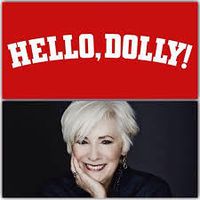Thank God the Gypsy Robe is now the legacy Robe
#25Thank God the Gypsy Robe is now the legacy Robe
Posted: 7/14/18 at 5:12pm
VintageSnarker said: "I get what you're saying and I think it's complicated. Basically, has the word evolved enough or been divorced enough from its original connotation to be used in this other context. Even though I see the new use as innocent, the way you do, it's hard to argue that it has. For example, take the words "idiot," "moron," "imbecile," etc. which in the past used to be used as part of a psychological scale evaluating intelligence. I know some people think that it's ableist to still use these words and disability rights advocates argue that they're still harmful. I think that's a reach. But the word "****"? While I also think it's fallen out of fashion enough to join those other words, I personally don't use it because it has been used recently enough with negative connotations that it is still hurtful to people."
Here's what I would propose instead:
As part of the legacy of the Gypsy Robe, I would suggest that for every ceremony, there be a voluntary collection taken by cast members. That collected money would (could) be matched by Actors' Equity, and the entirety of monies be donated to the Roma Peoples Project, as a sign that although the Theater Community has adopted the word in a completely different context, we support their cause to be freed from racial stereotyping or slur.
The word "gypsy" does not belong to the Roma peoples. It's a slur that was thrust upon them. The donations should not be viewed as "purchasing" the word from them, as (quite rightfully) they are a people that does not deserve to be wrongfully associated with, nor take ownership of the slur.
Rather, I would hope that the regular contributions, as an addition to the legacy of the Gypsy Robe, might be seen as a sign that good CAN come from bad, and that (altruistically) the Theater Community completely supports the Roma peoples' cause, and hopes that the Roma peoples can see that when the Theater Community (if not the rest of the world) uses the word "gypsy", it is used with nothing less than affection, pride and kinship. ...and that those affections are extended to the Roma peoples when we use the word.
My hope would be that the Roma peoples understand that the Theater Community knows and appreciates the hurtful history behind the word, and does not use it in our context without remembering them.
#26Thank God the Gypsy Robe is now the legacy Robe
Posted: 7/14/18 at 5:15pmThis simple, respectful change has brought out a lot of ugliness in the community. Change is hard, and if you are being told something you’ve always done without malicious intent is offensive to some people, it takes work to fix that. And people don’t like extra work. But imagine making the argument that we don’t have to stop doing blackface because it’s “tradition.” Imagine demanding that Show Boat start with the original N-Word lyric rather than the changed version because “it’s a classic.” Progressive movements progress. What was once “harmless” can become offensive. Or always was but can be brought to the forefront of our knowledge. If we can’t ask that our artists be on the front lines of positive social change, who should we be asking?
#27Thank God the Gypsy Robe is now the legacy Robe
Posted: 7/14/18 at 5:24pm
Sauja said: "This simple, respectful change has brought out a lot of ugliness in the community. Change is hard, and if you are being told something you’ve always done without malicious intent is offensive to some people, it takes work to fix that. And people don’t like extra work. But imagine making the argument that we don’t have to stop doing blackface because it’s “tradition.” Imagine demanding that Show Boat start with the original N-Word lyric rather than the changed version because “it’s a classic.” Progressive movements progress. What was once “harmless” can become offensive. Or always was but can be brought to the forefront of our knowledge. If we can’t ask that our artists be on the front lines of positive social change, who should we be asking?"
I understand your argument, but the examples above are all "static" - meaning that there is no evidence regarding how those specific examples have positively evolved into something different, creating a more positive situation.
For that reason, I feel the use of the word, "gypsy" is in a category all its own. Regarding the word, specifically, a social change HAS happened for the better (IMHO). Again - I restate that all the wrong reasons (cultural white-washing, especially) created the change. Yet again, I use the word, "bizarre". ![]()
#28Thank God the Gypsy Robe is now the legacy Robe
Posted: 7/14/18 at 5:34pm
OFFS. I like to think of myself as pretty liberal and progressive, but generally speaking, it certainly does feel like many in the theater world are trying so hard to be “woke” that it is sometimes a little silly - even a bit irritating. A lot of my fellow liberals are not that different from the Bible-thumping conservatives in terms of moral self-righteousness.
That said, if Romani people are offended by the name, Actors’ Equity is right to change it. However, Equity publicly patting itself on the back about it is a little gross.
#29Thank God the Gypsy Robe is now the legacy Robe
Posted: 7/14/18 at 5:37pm
It’s impossible to divorce the historical connotation of a slur from a revised usage. Especially in this case, where American actors essentially reclaimed a slur that wasn’t ever theirs to begin with- slur that implies disreputable nomadity. It doesn’t matter that American actors decided to ironically or affectionately adopt it- it is still rooted there.
It’s the same reason why people don’t use “jew” as a verb. It may not be *literally* antisemitic but its use is directly linked to antisemitism.
#30Thank God the Gypsy Robe is now the legacy Robe
Posted: 7/14/18 at 6:00pm
Kad said: "It’s impossible to divorce the historical connotation of a slur from a revised usage. Especially in this case, where American actors essentially reclaimed a slur that wasn’t ever theirs to begin with- slur that implies disreputable nomadity. It doesn’t matter that American actors decided to ironically or affectionately adopt it- it is still rooted there.
It’s the same reason why people don’t use “jew” as a verb. It may not be *literally* antisemitic but its use is directly linked to antisemitism."
I respectfully disagree.
Earlier, I wrote, "Here's a word that I have only known to be affectionate and a source of pride." That is because my age (I wasn't born when the word "gypsy" was first coined in Europe, nor lived through the early 20th-century era when it was commonly used with its negative connotation in the US) and geographical location prevented me from having a full, socially conscious understanding of the word.
I DID, however watch the Tony Awards the year Applause was nominated, and discovered the word "gypsy" in that context.
It only takes one generation of social ignorance to what's gone on before to create change (for better or worse).
I agree that it's still "rooted there", but if the roots go unnoticed by those who have no reason, cause or connection to them, they are invisible.
I can only offer myself as an example. I had absolutely no reason/incentive (and "incentive" is the better word) to research the etymology/history of the word "gypsy" as a young man, who grew up without the Internet. Why would I?
It DOES matter that "American actors decided to ironically or affectionately adopt it". That is the reason for the change in the word's connotation and emotional affinity (at least in the US).
#31Thank God the Gypsy Robe is now the legacy Robe
Posted: 7/14/18 at 6:03pm
This name change was absolutely the right decision. Broadway will survive.
Updated On: 7/14/18 at 06:03 PM#32Thank God the Gypsy Robe is now the legacy Robe
Posted: 7/14/18 at 6:06pm
Absolutely, Kad. I just wish Equity hadn’t tweeted out the “thank you” from the Romani association. Yes, Equity, good job leading by example (by fixing your own decades-long mistake).
However, commenting on one’s own example of morality is not necessary or productive. American Theatre Magazine’s writers have been especially self-congratulatory and pendantic as of late. It’s like, “You know you’re just preaching to the choir, right?”
#33Thank God the Gypsy Robe is now the legacy Robe
Posted: 7/14/18 at 6:19pmI applaud the change. Then again, I’m not a white American so I absolutely know how words and slurs, even outdated ones, are hurtful.
#34Thank God the Gypsy Robe is now the legacy Robe
Posted: 7/14/18 at 6:22pm
The Distinctive Baritone said: "Absolutely, Kad. I just wish Equity hadn’t tweeted out the “thank you” from the Romani association. Yes, Equity, good job leading by example (by fixing your own decades-long mistake)."
Funny story...
In Argentina, the word for pencil eraser is "goma" (translation: 'rubber'![]() . Although the literal translation is appropriate, in the US, the word "rubber" has a distinctly different meaning.
. Although the literal translation is appropriate, in the US, the word "rubber" has a distinctly different meaning.
When I was a student there (in High School), my English teacher kept referring to our erasers as "rubbers" (using the English word). Should I be blamed for giggling every time she said (in English), "Use your rubbers"?
Should Actors' Equity really be blamed for a "decades long mistake" when it's really a matter of cultural definition?
VintageSnarker
Broadway Legend Joined: 1/30/15
#35Thank God the Gypsy Robe is now the legacy Robe
Posted: 7/14/18 at 6:38pmThat's in no way equivalent. Condoms and ethnic slurs? A better example would be the gay slur that is used to mean cigarettes in the UK. I don't know the etymology of the word but there are two distinct cultural traditions (apparently). It would be different if the UK definition came from an understanding of the gay slur that compounded the issue the way the theatrical use of "gypsy" very much comes from a popular understanding of travellers.
Alexander Lamar
Broadway Star Joined: 2/16/16
#36Thank God the Gypsy Robe is now the legacy Robe
Posted: 7/14/18 at 6:38pm
J. C., some of you people are horrible.
This is changes doesn’t negatively affect anyone but some of you are acting like your first child has been slaughtered.
Give it it a rest. Your privilege is showing.
#37Thank God the Gypsy Robe is now the legacy Robe
Posted: 7/14/18 at 6:45pmIf everyone could please refrain from using the phrase “Your privilege is showing” that would be great. It’s becoming a cheap way to shut someone up.
#38Thank God the Gypsy Robe is now the legacy Robe
Posted: 7/14/18 at 6:46pm
VintageSnarker said: "That's in no way equivalent. Condoms and ethnic slurs? "
Nope... cultural definitions of words and other cultural definitions of words.
#39Thank God the Gypsy Robe is now the legacy Robe
Posted: 7/14/18 at 6:47pm
The Distinctive Baritone said: "If everyone could please refrain from using the phrase “Your privilege is showing” that would be great. It’s becoming a cheap way to shut someone up."
Even if we don't agree on this particular topic (which is fine), thanks for that!
#40Thank God the Gypsy Robe is now the legacy Robe
Posted: 7/14/18 at 6:49pm
BREAKING NEWS:
OLD MEN COMPLAIN RATHER THAN FACE RACISM!!!
#41Thank God the Gypsy Robe is now the legacy Robe
Posted: 7/14/18 at 6:53pm
Sondheimite said: "BREAKING NEWS:
OLD MEN COMPLAIN RATHER THAN FACE RACISM!!!"
Which would be fine if the theatrical definition of "gypsy" were an example of racism... Is "Chorus Boy/Girl" now a race? I did not know that...
#42Thank God the Gypsy Robe is now the legacy Robe
Posted: 7/14/18 at 6:54pmMan, this board was so much more fun before 2017 happened.
Alexander Lamar
Broadway Star Joined: 2/16/16
#43Thank God the Gypsy Robe is now the legacy Robe
Posted: 7/14/18 at 7:18pm
Your privilege is showing.
#44Thank God the Gypsy Robe is now the legacy Robe
Posted: 7/14/18 at 8:17pmDude, find a cause more worthy of your time. Calling out people on a chat board is not going to change anything.
#45Thank God the Gypsy Robe is now the legacy Robe
Posted: 7/14/18 at 10:52pm
John Adams said: "Kad said: "It’s impossible to divorce the historical connotation of a slur from a revised usage. Especially in this case, where American actors essentially reclaimed a slur that wasn’t ever theirs to begin with- slur that implies disreputable nomadity. It doesn’t matter that American actors decided to ironically or affectionately adopt it- it is still rooted there.
It’s the same reason why people don’t use “jew” as a verb. It may not be *literally* antisemitic but its use is directly linked to antisemitism."
I respectfully disagree.
Earlier, I wrote, "Here's a word that I have only known to be affectionate and a source of pride." That is because my age (I wasn't born when the word "gypsy" was first coined in Europe, nor lived through the early 20th-century era when it was commonly used with its negative connotation in the US)and geographical location prevented me from having a full, socially consciousunderstanding of the word.
I DID, however watch the Tony Awards the yearApplausewas nominated, and discovered the word "gypsy" in that context.
It only takes one generation of social ignorance to what's gone on before to create change (for better or worse).
I agree that it's still "rooted there", but if the roots go unnoticed by those who have no reason, cause or connection to them, they are invisible.
I can only offer myself as an example. I had absolutely no reason/incentive (and "incentive" is the better word) to research the etymology/history of the word "gypsy" as a young man, who grew up without the Internet. Why would I?
It DOES matter that "American actors decided to ironically or affectionately adopt it". That is the reason for the change in the word's connotation and emotional affinity (at least in the US)."
Being ignorant of a word’s origins doesn’t excuse its use once you discover the meaning. I have a hard time believing that you would possibly tell an offended Romani person, “oh, it’s okay, it is not really a slur when I say it.”
Its use came out of its use as a slur. It is still erroneously used to label the Romani people, even in the US. It is still used in popular culture that way.
And honestly- how many working actors in 2018 refer to themselves as “gypsies” outside of the Robe or Gypsy of the Year? It smacks of a midcentury sensibility that no longer exists.
#46Thank God the Gypsy Robe is now the legacy Robe
Posted: 7/14/18 at 11:17pm
The word is a slur. It became a word people use in everyday life because that sometimes happens with slurs. People not affected by the word reclaimed it because, I don't know, they thought it was cool for some reason. People today still don't know it's a slur. A labor union that uses the word in a long-standing tradition decided to stop using the word because times have changed and people were educated. The tradition itself has not changed. That's all there is to it.
I know people who didn't know the n-word was a slur growing up, but once they found out, they stopped using the word immediately. Not sure why this one is any different. History and tradition are not a good excuse. This is a change for the better, period.
#47Thank God the Gypsy Robe is now the legacy Robe
Posted: 7/15/18 at 1:07am
Steve C. said: "^ very respectfully, I agree with JA's thoughtful post"
Me too.
Ravenclaw
Leading Actor Joined: 9/16/17
#48Thank God the Gypsy Robe is now the legacy Robe
Posted: 7/15/18 at 2:41am
I understand the side saying that the word as it is used in the theatre is entirely divorced from its original context. Another example of an acceptable word with problematic origins is the word "hysterical," whose root references female anatomy. Etymologically, the word "hysterical" references an implied instability or craziness perceived to be inherent in women. However, most people who use the word "hysterical" have no idea of its etymological origin, and thus, you'd be hard pressed to find someone who takes great offense at the use of the word "hysterical" today, despite its problematic origin. When does a word become so divorced from its potentially offense etymological origin that it becomes acceptable? In a related area, how do marginalized communities re-appropriate slurs, and why are some acceptable only when spoken by members of the marginalized community (i.e. today "queer" is an acceptable term in academia, but the "n-word" is decidedly not). These questions have hard to define rules and so many exceptions, and linguists disagree fervently on these matters.
All that said, for me, even if the word "gypsy" falls into a "so divorced from the original meaning it's no longer offensive" category (which I'm not entirely sure it does, but that's beside the point), the name change falls into a sort of "how does this harm anyone?" place. Some people are offended by the original name, so it was changed. The new name doesn't intentionally or unintentionally target any groups. If you are of the opinion that the original name isn't offensive, fine, I'm sure I won't change your mind, but does it really hurt you in any way knowing that someone else feels a little more comfortable? What do you do when you curse in conversation and your friend respectfully says "Can you please not use that word around me? I don't like to hear that language."? Do you fervently tell them why what you said is objectively not offensive and go on speaking as before, or do you adjust your language in an act of respect which requires absolutely no effort from you? A thing that had a name now has a different name. Why care so much?
#49Thank God the Gypsy Robe is now the legacy Robe
Posted: 7/15/18 at 3:07amWell it’s now called the Legacy Robe. It’s done. Can we all just get used to it and move on? I promise it’s not going to change things as much as you think.
Videos









